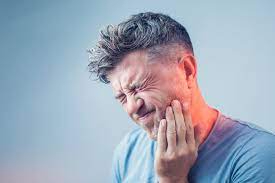 Dental emergencies can cause significant pain, discomfort, and potential long-term issues if not addressed promptly. It is crucial to understand the difference between a standard dental issue that can wait for a regular dental appointment and a true emergency that requires immediate attention. This article will provide valuable insights into recognizing dental emergencies and knowing when to seek immediate treatment from an emergency dentist.
Dental emergencies can cause significant pain, discomfort, and potential long-term issues if not addressed promptly. It is crucial to understand the difference between a standard dental issue that can wait for a regular dental appointment and a true emergency that requires immediate attention. This article will provide valuable insights into recognizing dental emergencies and knowing when to seek immediate treatment from an emergency dentist.
The Prevalence of Dental Emergencies
According to a study published in the American Family Physician, approximately 22% of people reported experiencing oral pain in the previous six months, highlighting the prevalence of dental emergencies. However, not all dental situations should be considered emergencies. To determine whether immediate attention is necessary or if it can wait until a regular dental visit, ask yourself the following questions:
- Are you in severe pain or experiencing bleeding? Severe pain and bleeding are strong indicators of a dental emergency that requires immediate treatment.
- Have you lost a tooth? Swift action can potentially save a tooth that has been knocked out.
- Do you have loose teeth? Adults should not experience loose teeth, even without pain. A loose tooth, regardless of pain, should be considered a serious problem.
- Do you have an infection? An abscess or serious infection in the mouth can be life-threatening and should not be delayed.
- Are you bleeding from the mouth? This can be a sign of a dental emergency that needs immediate attention.
In general, any dental issue that requires immediate treatment to stop bleeding, alleviate severe pain, or save a tooth is considered an emergency. This also applies to severe infections that can be life-threatening.
Common Dental Emergencies and Their Treatments
Understanding the most common dental emergencies and the necessary steps to take until you can see a dentist is crucial. Here are some of the most common dental emergencies and what you should know about them:
Unexplainable Toothache
Toothaches are not to be taken lightly, as they are an indication that something is not right in your mouth. When you experience sudden and unexplainable tooth pain, it is essential to consult a qualified emergency dentist for diagnosis and treatment. While waiting for your dental appointment, you can try the following methods to manage the pain:
-
- Apply a cold compress to the affected area.
- Rinse your mouth with saltwater.
- Use over-the-counter pain medication to alleviate discomfort.
Swollen or Bleeding Gums
Occasional gum irritation may not be a dental emergency, but if your gums won’t stop bleeding, accompanied by pain and swelling, it could indicate an underlying dental or health issue. Bleeding gums without an obvious cause should not be considered normal. Seek immediate dental attention if you experience these symptoms.
Swollen Jaw or Mouth
If your mouth or jaw suddenly becomes swollen without any apparent reason, it is time for an emergency dental visit. Swelling in these areas can be a sign of infection or irritation to the lymph nodes, requiring prompt professional dental care.
Exposed Nerves
Exposed nerves can be excruciatingly painful and will only worsen if not treated promptly by a dentist. Seeking immediate dental assistance is crucial to prevent infections, further nerve damage, or more extensive emergency dental treatments.
Knocked-Out Tooth
Having a tooth knocked out from a heavy impact can be shocking. However, immediate action is necessary to potentially save the tooth. According to the American Association of Endodontists, reinserting and preserving a knocked-out tooth is possible with prompt action. Here are the steps to take before seeing a dentist:
-
- Carefully pick up the tooth by the top, avoiding touching the root.
- Rinse the tooth gently without scrubbing.
- If possible, reinsert the tooth into the socket.
- If reinsertion is not possible, place the tooth in a container of milk or water.
- Get to the dentist quickly to increase the chances of saving the tooth.
Missing Filling
Missing a filling is another potential dental emergency as it can leave your tooth vulnerable to breakage or chipping. It may also expose the tooth’s nerves, leading to other dental issues that require immediate treatment. Contact your dentist right away if you lose a filling.
Broken Crown
When a dental crown breaks or falls off, it exposes the underlying tooth, making it susceptible to infection and damage. Scheduling an emergency dental visit to replace the crown can help prevent the need for more invasive procedures such as root canals or extractions.
Abscessed Tooth
A dental abscess is a severe and potentially life-threatening condition in which a pocket of pus within the tooth leads to an infection. Symptoms of a tooth abscess may include fever, sensitivity to hot and cold, persistent toothache, tender lymph nodes in the neck, swelling in the face, or a pimple-like bump on the gums near the infected tooth. This condition requires immediate attention as the infection can spread to the jaw, surrounding tissues, and other parts of the body.
Food/Object Lodged Between Teeth
When a piece of food or another object becomes lodged between your teeth and brushing or flossing does not help, it is necessary to see a dentist right away. Leaving an object lodged between teeth can cause teeth to shift, gum irritation, gum disease, tooth decay, or even an infection.
Infections
Dental infections are serious issues that worsen over time without proper dental care. The initial discomfort may progress to difficulty eating and severe symptoms, including swelling in the face or jaw and a high fever. Severe infections can lead to abscesses, and untreated abscesses can have critical consequences. Immediate dental attention is necessary to prevent the infection from spreading and causing further complications.
Why Immediate Action Is Essential
Seeking immediate emergency dental care is crucial when facing a dental emergency. While emergency tooth extraction or oral surgery may not be desirable, prompt dental care offers several benefits, including:
- Saving teeth: Emergency dental treatment may save your natural tooth, preventing the need for tooth extraction and subsequent restorative procedures like dental implants or appliances to fill the gap.
- Alleviating discomfort: Prompt dental care addresses the root cause of dental pain, providing relief and preventing prolonged discomfort.
- Preventing complications: Untreated dental issues can progress and lead to more significant problems. Seeking emergency dental care ensures that critical issues are addressed promptly, minimizing the risk of complications.
- Preserving dental appliances: Some dental emergencies involve appliances like braces or bridges. Ignoring issues affecting these appliances can lead to damage or complications. Seeking emergency dental care can help preserve and protect these appliances.
Chronic tooth pain, swelling, or infections can significantly impact your ability to eat, speak, and perform daily activities. In severe cases, infections can even affect breathing. Seeking emergency dental care ensures that you receive the necessary treatment to restore function and prevent further escalation of problems.
How to Treat Dental Emergencies
The treatment for dental emergencies depends on the specific situation and the type of damage sustained. In many cases, severe toothaches, chips, or cracks may require an emergency dentist to treat an infection and repair the damaged tooth. Treatments for dental emergencies can include:
- Root canal treatment
- Dental filling
- Tooth extraction
- Splinting
- Reimplantation
- Antibiotic treatment
- Irrigation
- Restorative procedures
Your dentist will assess the situation and recommend the most appropriate treatment for your dental emergency. It is essential to follow their instructions and seek immediate dental care to prevent further complications.
Finding an Emergency Dentist
When facing a dental emergency, it is crucial to find an emergency dentist who can provide immediate care. If you cannot locate an emergency dentist or secure an emergency dental appointment, hospital emergency rooms can offer emergency care for certain dental emergencies, including bacterial infections, bleeding gums, cracked or chipped teeth, dental fractures, and severe pain. However, it is recommended to contact a dental office first, as they can provide specialized dental care tailored to your emergency needs.
Recognizing a dental emergency and seeking immediate attention is crucial to prevent further complications and alleviate pain and discomfort. Dental emergencies can range from severe toothaches and infections to knocked-out teeth and broken crowns. It is essential to understand the signs and symptoms of a dental emergency and take the necessary steps to seek prompt dental care. Remember to contact an emergency dentist, follow their instructions, and prioritize your oral health to maintain a healthy and pain-free smile.
Contact us (859) 586-7900 for more information or to make an appointment!
—
 About Torbeck Dental
About Torbeck Dental
Torbeck Dental treats every patient with dignity and excellent care. We are highly trained dental professionals with exceptionally friendly and helpful service. We understand that for many, visiting a dentist can be a stressful experience so our comfortable surroundings and compassionate staff will ease any fears you may have. We are here to help you achieve your happiest and healthiest smile! Our dental team are a group of experienced professionals using the latest treatments. Our team has the professional experience to realize that there is no such thing as one-size-fits-all treatment, so we never use a one-size-fits-all approach to your dental plan. We provide quality and personalized oral health care while keeping your individuality in mind. Our goal is to improve and maintain your oral health so you can smile with confidence!
